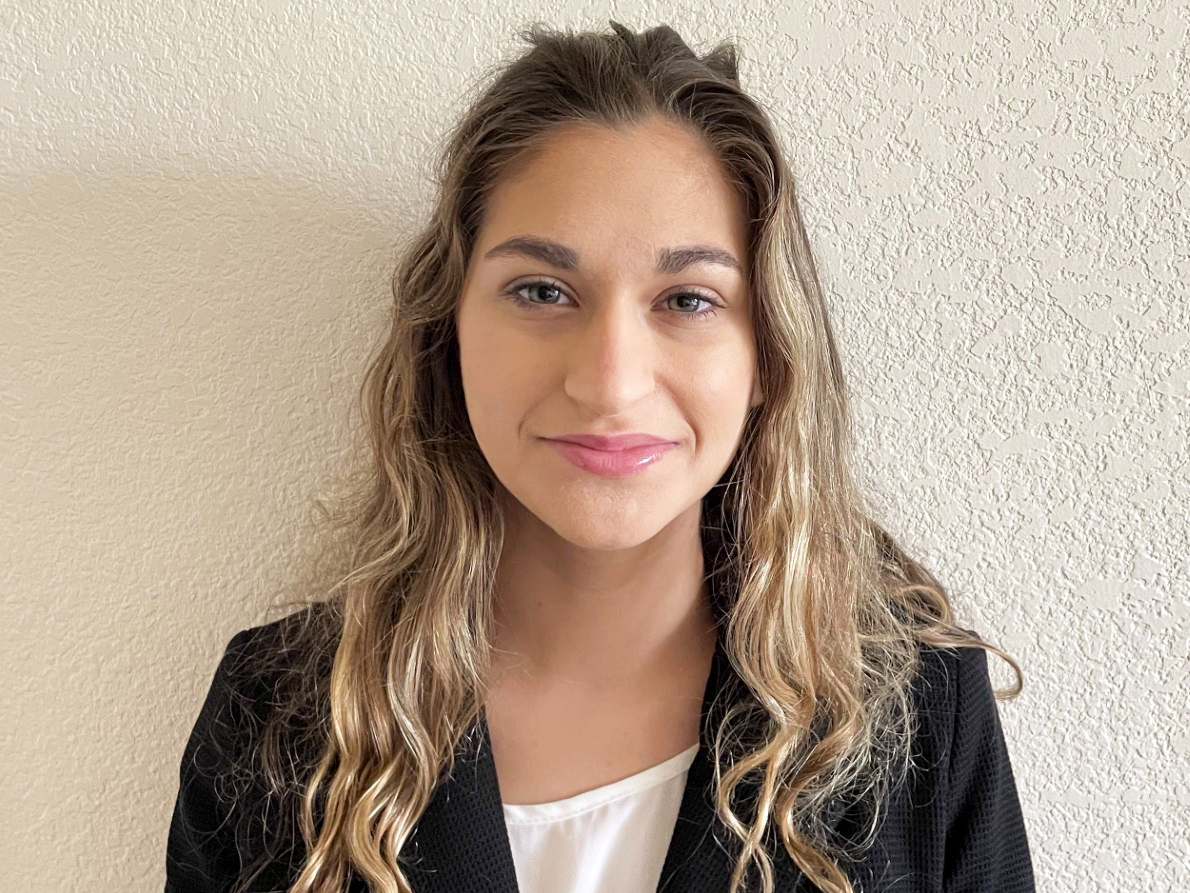In this series, Elon College, the College of Arts and Sciences is shining the spotlight on distinguished members of the Class of 2022 from a wide array of disciplines.
Lumen Scholar Melissa Denish will enroll in Thomas Jefferson University’s Sidney Kimmel Medical School this fall as she plans a career in neurology.
A biochemistry major, she earned minors in psychology and criminal justice studies. She was a teaching and learning assistant for general chemistry labs beginning her sophomore year and continued in that role through her senior year, working alongside numerous chemistry faculty.
Denish is a member of Phi Lambda Upsilon chemistry honors society and received the Department of Chemistry’s first-year chemistry award. She was a member of the Elon Mock Trial Team that advanced from regional competition to compete in the Opening Round Championship series at Georgia Tech this spring. Denish was also involved in Hillel and the Elon Pre-Health Society.
What professors said:
“Melissa embraces the idea of learning as a key component of living your best life. For example, her first year she was an active member of the LICHENS Living and Learning Community for STEM majors and has continued that joy in her mentorship of other students studying STEM,” said Assistant Professor of Chemistry Jen Dabrowski.
How did you select your biochemistry major?
I knew that I was fascinated by both biological and chemical sciences, due to the mentorship of Dr. Viscariello from my high school. The criminal justice studies minor came from an interest in forensics, and I studied psychology simply because I find it interesting and know that it can be useful in many fields.
Tell us about your Lumen Prize-winning research project.
I have two research mentors, Dr. Tonya Train in biology and Dr. Kathryn Matera in chemistry. My research is called “Investigating the Molecular Basis of Tay-Sachs Disease” and consists of modeling this fatal neurodegenerative disease in a laboratory setting.
I selected this topic because it combined two large parts of my identity: science and my Jewish identity. TSD is more prevalent in the Ashkenazi Jewish population. I was excited to partake in a research project that was important to me on a personal and professional level.
I presented this research twice at Elon’s Spring Undergraduate Research Forum, once as a poster and once as an oral presentation. I also attended SERMACS, or the Southeast Regional Meeting of the American Chemical Society, where I presented my research as a poster.
I worked closely with Dr. Train and Dr. Matera. My relationship with them was not only limited to my research, but also they have been highly involved in my journey of applying to medical school. Another professor that I’ve worked with extensively is Dr. Dan Wright. He is my advisor, and welcomed me into the chemistry department with open arms.
What were the most valuable parts of your college experience?
There are several aspects of my undergraduate career that largely defined my college career. The Lumen Prize solidified my interest in research and contributed to my desire to become a physician. This program gave me a cohort of amazing research students in all fields to learn from. Additionally, I went on the Holocaust Journey study abroad this past winter. I had an incredible and meaningful experience, visiting five concentration camps and even seeing the Nuremberg Trials courthouse.
What advice would you give future Elon students?
While college can be stressful, there are so many ways to form a close social bond with others and build a supportive network that can last you a lifetime! I recommend joining clubs and organizations and exploring classes in all fields. I wish I had known that it is okay to fail, and it is okay to ask for help when and if you need it. When I took organic chemistry, I struggled a lot. I am grateful that I did not let that experience deter me from continuing my major or from applying to medical school.



